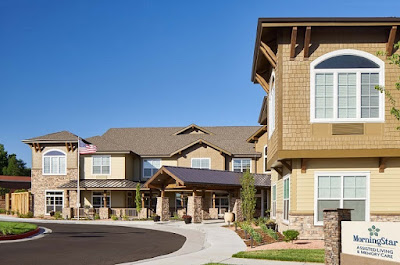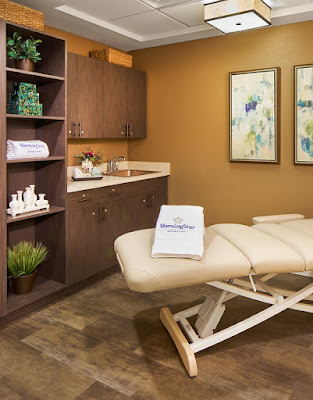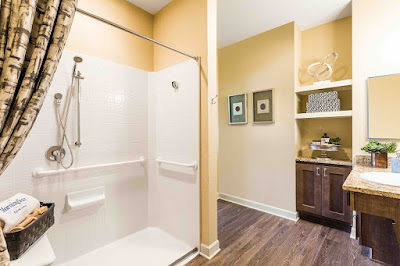Memory Care at MorningStar of Littleton

Along with assisted living , MorningStar of Littleton offers individualized, specialized care to those with Alzheimer’s disease and other forms of dementia. Our holistic approach to memory care is designed to affirm the value of the person and to find ways to celebrate the smallest successes. Our Reflections Neighborhood is specifically designed to meet the needs of residents throughout the various stages of the disease. The expansive area houses 20 secure suites and is intended to encourage residents to safely explore their surroundings. Memory care residents also enjoy the outdoors with an enclosed courtyard. Normally, mealtimes in the Reflections Neighborhood are as much about Community as they are about Nutrition, with residents and team members eating together. Family style meals allow team members to encourage residents’ appetites as well as to provide any needed assistance with eating. During the coronavirus outbreak, however, changes have been made in dining protocols







